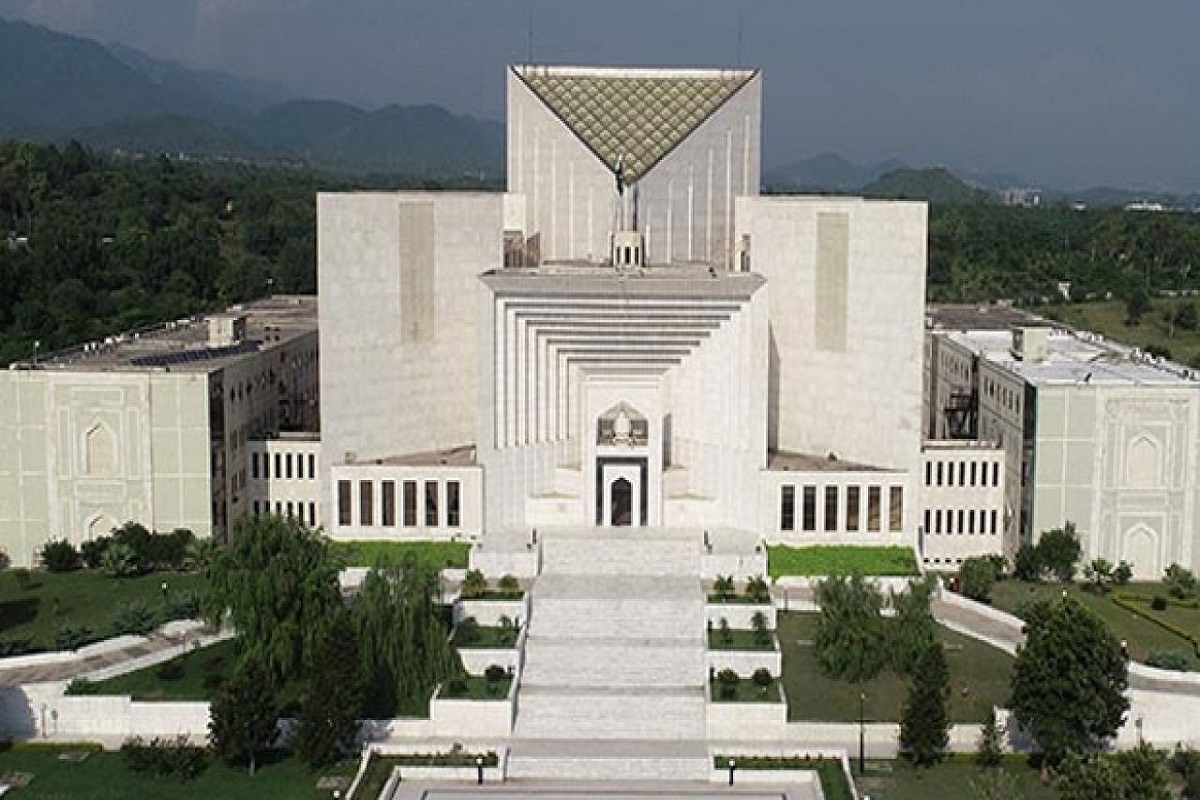ISLAMABAD: The Supreme Court (SC) on Thursday suspended both the Lahore High Court’s (LHC) decision to establish additional election tribunals and the Election Commission of Pakistan’s (ECP) notification from April 26.
This ruling came from a five-member bench of the SC, led by Chief Justice of Pakistan Justice Qazi Faez Isa, and included Justice Amin-ud-Din Khan, Justice Jamal Khan Mandokhel, Justice Naeem Akhtar Afghan, and Justice Aqeel Ahmed Abbasi. They were hearing the ECP’s appeal against last month’s LHC verdict, which had set up eight election tribunals to handle petitions concerning national and provincial assembly constituencies.
The SC’s decision is the latest development in the ongoing dispute between the ECP and the LHC over the appointment of judges to election tribunals for the February 8 polls.
The ECP appealed to the SC under Article 185(3) of the Constitution, arguing that, according to Article 219 in conjunction with Article 222(b) of the Constitution, the authority to appoint election tribunals lies with the ECP and not the high court.
Furthermore, the ECP argued that Article 219 of the Constitution does not explicitly require the commission to consult with the chief justice of the relevant high court for appointing election tribunals or determining their territorial jurisdiction.
According to Section 140(3) of the Elections Act 2017, consultation with the chief justice of the high court is only needed when appointing sitting high court judges as election tribunals, not for allocating their territorial jurisdiction. This, the ECP contended, is the sole authority of the ECP, as specified in Section 140(1) read with Section 151 of the Elections Act 2017.
During the hearing, Justice Mandokhail stated that the ECP could not dictate or demand specific judges from the LHC Chief Justice. “You [ECP] cannot choose between the judges,” he said.
Chief Justice Isa added that it was the LHC Chief Justice’s role to decide on the availability of judges for election tribunals.
The SC criticized the lack of communication between the ECP and the LHC, noting that the two judges the ECP appointed, out of the six nominated by the LHC Chief Justice, were insufficient.
Emphasizing that the issue began when the LHC created additional tribunals, the SC decided to keep the case pending and left the matter to be resolved through consultation between the ECP and the LHC Chief Justice.
The court directed both the LHC and the ECP to consult on the matter and adjourned the case until meaningful consultations take place.
The conflict between the ECP and the LHC started when the ECP requested a panel of serving judges from the LHC for election tribunals on February 14.
The LHC Chief Justice initially nominated two judges on February 20, followed by six more on April 14. The ECP notified two of these judges on April 26 but then requested additional names for the Rawalpindi and Bahawalpur election tribunals.
This request was denied by the LHC Chief Justice, whose registrar insisted that the ECP notify the tribunals as constituted by the nominated judges.
The ECP refused, arguing that notifying the tribunals as per the LHC’s nominations would imply that the tribunals were solely appointed by the LHC Chief Justice, which would violate Section 140(3) of the Elections Act.
In response, LHC Chief Justice Malik Shahzad Ahmad formed eight election tribunals for the February 8 polls, prompting the ECP to challenge this move in the Supreme Court.



















